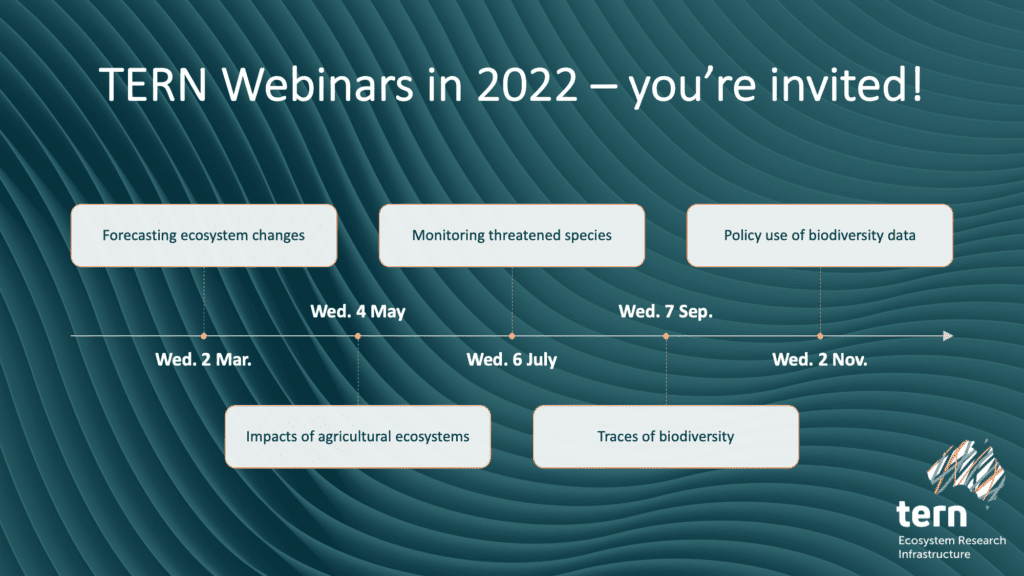From managing our coasts to extreme events and climate modelling, TERN’s 2021 Lyn Beazley AO Ecosystem Observations webinar series covered some of the nation’s biggest ecosystem science issues.
If you didn’t get to see them, want to watch them again, or think a colleague might be interested, you can access recordings of all the webinars here.
The Australian sea-change phenomenon
7 April 2021
Dr Michelle Heupel, Dr Elisa Bayraktarov & Sharon Tickell.
“We need to combine and integrate our existing capacity and capability to better understand coastal dynamics and determine where we still have gaps in observing and understanding. There are a lot of challenges in this space – we need to decide and prioritise and figure out – what are the key pieces of information that we have and we can build from there – it is like how to eat an elephant, you need to pick where start and go from there.”
Dr Michelle Heupel, Integrated Marine Observing System (IMOS)
Resilience in Australia’s ecosystems
“The four big pressures on Australia’s environment which impact on resilience are 1) Climate change, 2) Land use change, 3) Habitat fragmentation and degradation, and 3) Invasive species with the most impact being caused when they all happen simultaneously.”
Dr Ian Cresswell, Co-Chief Author, 2021 National State of the Environment Report
Climate modelling in Australia
“Weather resolving climate models require a large financial investment but climate extremes cost Australia about $1.8 billion in 2018 alone. Observations are critical for developing models and there are few robust, long-term, spatially distributed and consistent ecosystem observations over relevant timescales that scientists are able to work with.
Australia’s data is highly relevant to the largely unstudied hotter and dryer regions of the earth. Surrogate data can be useful but is alone not enough.”
Prof. Andy Pitman AO, University of New South Wales
Extreme events
“Extreme weather events are important for ecosystem functioning in Australia, but that they are likely to become more extreme over coming decades, with potentially damaging consequences for species, environments and people.”
Dr Dan Metcalf, CSIRO
Water in our ecosystems
“TERN’s national actual evapotranspiration data support improved water use efficiency in the irrigation sector, helping ensure Australia’s future food security and potentially making water savings available as environmental flows.
Additionally, the data provide much needed information on the water needs of groundwater dependent ecosystems allowing for enhanced management of these small but critical biodiversity hotspots.”
Dr Tim McVicar, CSIRO Land and Water
2022 webinars
TERN has another year of exciting webinars lined up in 2022!
We hope to ‘see’ you at the next TERN webinar on Wednesday, 2 March 2022!







